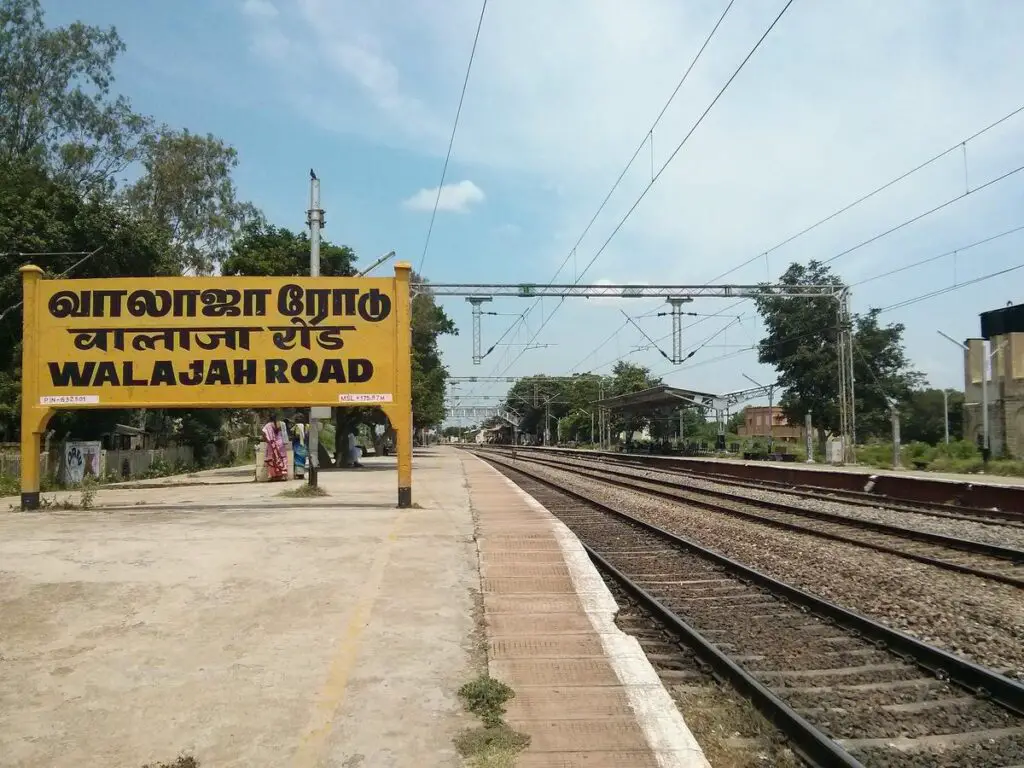Walajah is a small town in the Tiruvallur district of Tamil Nadu, India. It is located about 30 kilometers (19 miles) north of the state capital, Chennai. Walajah is known for its historical temples, including the Walajah Mosque and the Walajah Fort.
History
Walajah was founded by Nawab Muhammad Ali Khan Wallajah in the 18th century. The town was named after the Nawab, who was a major patron of the arts and sciences. Walajah was a major trading center during the Nawab’s rule, and was also a major military base.
Geography
Walajah is located at the foot of the Tiruvallur Hills, a small mountain range in the Tiruvallur district. The town is situated on the banks of the Palar River, a tributary of the Krishna River. Walajah has an average elevation of 120 meters (394 feet) above sea level.
Demographics
According to the 2011 Indian census, Walajah had a population of 18,458 people. The majority of the population is Hindu, with a small minority of Muslims and Christians. The town is multilingual, with Tamil being the official language and the most widely spoken language. Telugu, Kannada, and Urdu are also spoken by significant minorities.
Economy
Walajah’s economy is based on agriculture, tourism, and manufacturing. The town is known for its rice, sugarcane, and banana crops. Walajah is also a popular tourist destination due to its historical temples and natural beauty. The town is also home to a number of small-scale industries, including textile mills, food processing plants, and engineering firms.
Education
Walajah has a number of schools and colleges. The town is home to the Walajah Government Arts College, which is affiliated with the University of Madras.
Culture
Walajah has a rich culture and heritage. The town is home to a number of temples, festivals, and traditions. The town is also known for its handicrafts, which include pottery, weaving, and wood carving.
Tourism
Walajah is a popular tourist destination due to its historical temples and natural beauty. The town is home to the Walajah Mosque and the Walajah Fort, which are both considered to be among the most important historical landmarks in Tamil Nadu. Walajah is also home to a number of other temples, including the Hanuman Temple, the Anjaneya Temple, and the Amman Temple. The town is also a popular spot for birdwatching. The Tiruvallur Hills are home to a variety of birds, including the Indian roller, the hoopoe, and the Indian grey hornbill.
Transportation
Walajah is well-connected by road and rail. The town is situated on the National Highway NH4, which connects Chennai to Bangalore. Walajah also has a railway station on the Chennai-Bangalore line.
Accommodation
Walajah has a number of hotels and lodges to accommodate visitors.
Specific Answers to Your Questions
- Location: Walajah is located in the Tiruvallur district of Tamil Nadu, India. It is situated on the National Highway NH4, which connects Chennai to Bangalore. Walajah is also about 30 kilometers (19 miles) north of the state capital, Chennai.
- Area: Walajah has an area of about 6 square kilometers (2.3 square miles).
- Population: Walajah had a population of 18,458 people in 2011.
- Economy: Walajah’s economy is based on agriculture, tourism, and manufacturing. The town is known for its rice, sugarcane, and banana crops. Walajah is also a popular tourist destination due to its historical temples and natural beauty. The town is also home to a number of small-scale industries, including textile mills, food processing plants, and engineering firms.
- Education: Walajah has a number of schools and colleges. The town is home to the Walajah Government Arts College, which is affiliated with the University of Madras.
- Culture: Walajah has a rich culture and heritage. The town is home to a number of temples, festivals, and traditions. The town is also known for its handicrafts, which include pottery, weaving, and wood carving.
- Tourism: Walajah is a popular tourist destination due to its historical temples and natural beauty. The town is home to the Walajah Mosque and the Walajah Fort, which are both considered to be among the most important historical landmarks in Tamil Nadu. Walajah is also home to a number of other temples, including the Hanuman Temple, the Anjaneya Temple, and the Amman Temple. The town is also a popular spot for birdwatching. The Tiruvallur Hills are home to a variety of birds, including the Indian roller, the hoopoe, and the Indian grey
